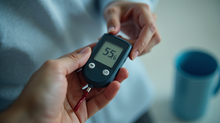Guest Blog: Jason Lewis (StrongWell.org)
- Maureen Sullivan
- Sep 16, 2021
- 2 min read

Make Your Path to Recovery Easier Through Fitness and Wellness
Everyone knows that exercise is good for you. But, did you know that physical fitness could be your key to addiction recovery? Many people are able to boost the success of their addiction treatment with a healthy routine involving fitness and mental health care. Ready to learn more?
Develop and Maintain and Healthy Routine
Developing a healthy lifestyle can reduce the chance of relapse for someone in recovery. A routine provides order, stability, and keeps you on track towards your goals for greater health. To maintain a routine in the long-term, it must become a habit. The best way to form new habits is to write down your planned daily activities and follow this plan for 21 days. After this, you won’t need as much motivation to stick to your routine.
Take Care of Your Mental Health
Addiction takes a toll on your mind and body. So, anyone intent on recovering from addiction should focus on improving their mental health. First, try to avoid the digital world for a little while. The blue light emitted from screens reduces sleep quality while social media sites tend to make us feel bad about ourselves. Some people find that keeping a gratitude journal reduces stress and improves their mental health. Or, take a walk in nature to reduce feelings of depression and improve your cognitive functioning. Whatever you choose to do, the most important thing is to find a healthy activity that makes you feel good.
Exercise to Benefit Your Brain and Avoid Cravings
Multiple studies reveal that exercise has long-term effects on our brain, which can help recovering addicts avoid relapse and maintain health into the future. Exercise reduces feelings of stress and depression. In fact, the mood-enhancing effects often kick in after just five minutes of exercise. Moving your muscles causes the release of “feel-good” hormones and those associated with mood control. Exercising also reduces levels of stress-causing chemicals in your body that contribute to feelings of depression.
Find Activities to Distract Yourself
Exercise provides a necessary distraction from negative thoughts and feelings to help aid recovery. When you’re exercising, your mind can’t dwell on the discomfort of your withdrawal symptoms or nagging anxiety. Meditation and yoga are great activities to help you take control of your mind throughout recovery. According to Psychology Today, practicing mindfulness through meditation and yoga can help recovering addicts cope with negative emotions such as depression and anxiety.
For anyone recovering from addiction, exercise and other wellness-centered activities can be a useful tool to help you along the way. Getting started with a new routine can be overwhelming, especially if you're facing substance withdrawals. Gradually work your way into a healthy fitness routine by setting small goals for each day. Eventually, you'll be on the path toward long-term health and sobriety!
Jason Lewis is a personal trainer, who specializes in helping senior citizens stay fit and healthy. He is also the primary caretaker of his mom after her surgery. He created StrongWell.org and enjoys curating fitness programs that cater to the needs of people over 65.
jason_lewis@strongwell.org



































Comments